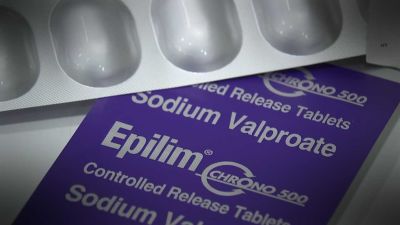What is Primodos, sodium valproate and the vaginal mesh implant?

The government has launched a review into how the NHS addresses patient concerns about the safety and side effects of treatments.
In particular, it will look into concerns raised about the hormone pregnancy test drug Primodos, vaginal mesh and anti-epilepsy drug sodium valproate.
It will also consider whether any further action is required into the issues, including whether a full investigation or an inquiry is necessary.
Primodos
What is Primodos?Primodos is a Hormonal Pregnancy Test that first became available in the UK in 1959. Around 1.5 million women in Britain were given the drug during the early stages of pregnancy.
How does it work?The pill contains a synthetic version of two hormones, progesterone and estrogen. It works by triggering menstruation when there is no pregnancy.
Why is Primodos controversial?
It was withdrawn from the the market in 1978 for "commercial reasons". Families say the drug is responsible for causing birth defects including missing limbs, brain damage and miscarriages.
A campaign group, the ‘Association for Children Damaged by Hormone Pregnancy Tests’, took the manufacturer of Primodos, Schering (now Bayer), to court in the 1970s.
However, the casual link between the drug and birth abnormalities has always been an uncertain factor. A review by the Commission on Human Medicines found there was no "casual link" between Primodos and the birth defects, meaning the drug is not the cause of birth defects and that the association between the two could be linked to other factors.
A new report published earlier this month in Scientific Reports, Nature, highlighted fresh evidence proving that the drug is linked to "developmental abnormalities". The study, lead by Aberdeen University scientist, Neil Vargesson, was done using zebrafish embryos.
"Further work in mammalian model species are now required to build on these findings and determine if placental embryos also are affected by synthetic sex hormones," Vargesson and team stated in the study.
Sodium valproate
What is sodium valproate?
Sodium valproate is used to treat epilepsy alongside acting as a mood stabiliser for bipolar disorder.
How does it work?It is thought to prevent epileptic fits by calming excessive electrical activity in the brain.
Why is it controversial?Birth defects caused by the drug could pass down generations. Scientists proved this in an experiment on mice where behavioural changes in the first generation were seen in the third generation of mice who had not been exposed to the drug in the womb.
What is the current advice?
Sodium valporate is listed on the NHS website as an anti-epilepsy drug, directing users to seek the advice of their doctor before taking it as it can "harm an unborn baby."
Vaginal mesh
What is the vaginal mesh?
It is an implant used to treat incontinence and pelvic organ prolapse, which affects up to half of women who have had children. This can result in urine leaking when they cough or sneeze.
How does it work?
The mesh is inserted surgically through an incision in either the vagina or the abdomen wall in the hopes that it will support weakened organs and repair damaged tissue.
Why is it controversial?More than 800 women took legal action against the NHS last year deeming the mesh as "barbaric treatment."One in 15 women who had the implants needed surgery to remove the mesh following traumatic complications.
What is the current advice?The mesh should only be used in research circumstances according to guidelines from The National Institute for Health and Care Excellence.